University Company Law Report: Directing Mind and Piercing the Veil
VerifiedAdded on 2019/11/12
|6
|608
|142
Report
AI Summary
This report delves into key aspects of company law, specifically examining the concepts of Directing Mind and Piercing the Corporate Veil. The report elucidates the responsibilities of corporations concerning the actions of their managers, directors, and employees, emphasizing that while a company cannot be imprisoned, it can be held liable for the actions of its representatives. The report highlights the importance of the legal principle 'Actus non facit reum nisi means sit rea' in determining criminal liability and explores the application of criminal vicarious liability. Furthermore, it discusses the implications of civil penalties and the role of management authorities in addressing corporate misconduct. The report then transitions to the concept of Piercing the Corporate Veil, explaining the circumstances under which the limited liability of a company can be disregarded, making directors and shareholders personally responsible for the company's debts. It examines the legal rights and duties of separate legal entities and how this concept can be applied in cases of fraud or misrepresentation. The report references key legal cases, including Tesco Supermarkets Ltd. v. Nattrass [1972] and Adams v. Cape Industries plc [1990], to illustrate the application of these legal principles. The report provides an overview of the legal framework governing corporate liability and the circumstances under which the corporate veil can be pierced.
1 out of 6

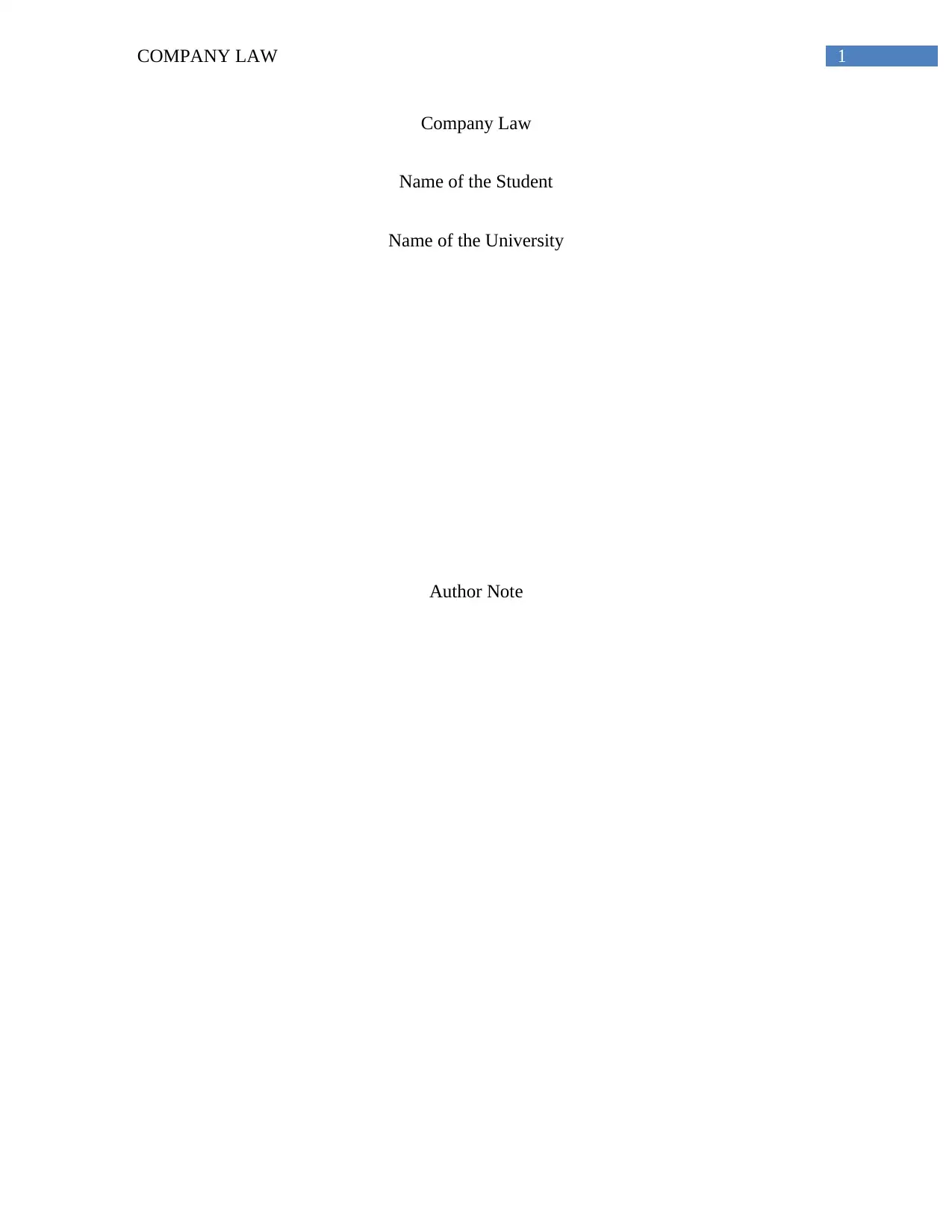
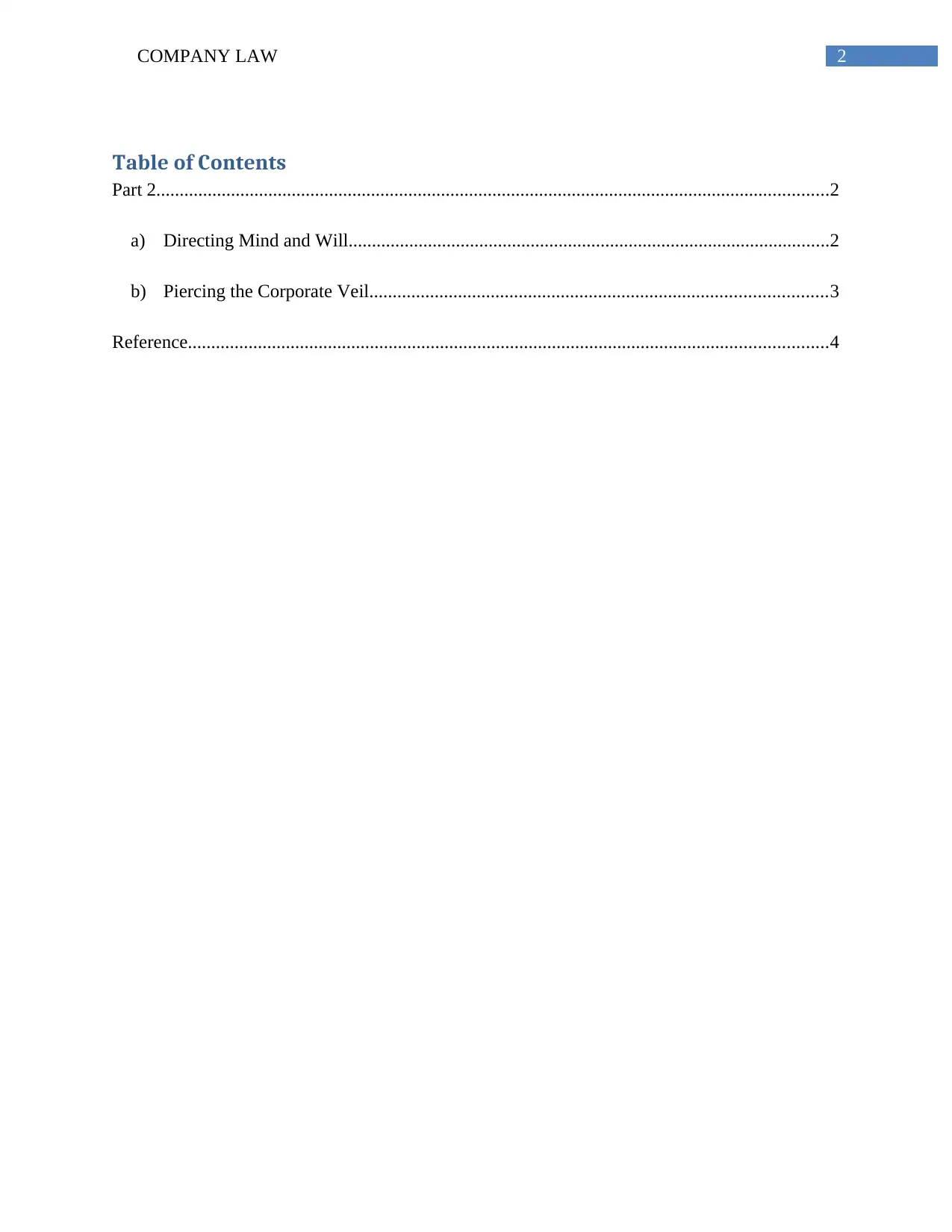

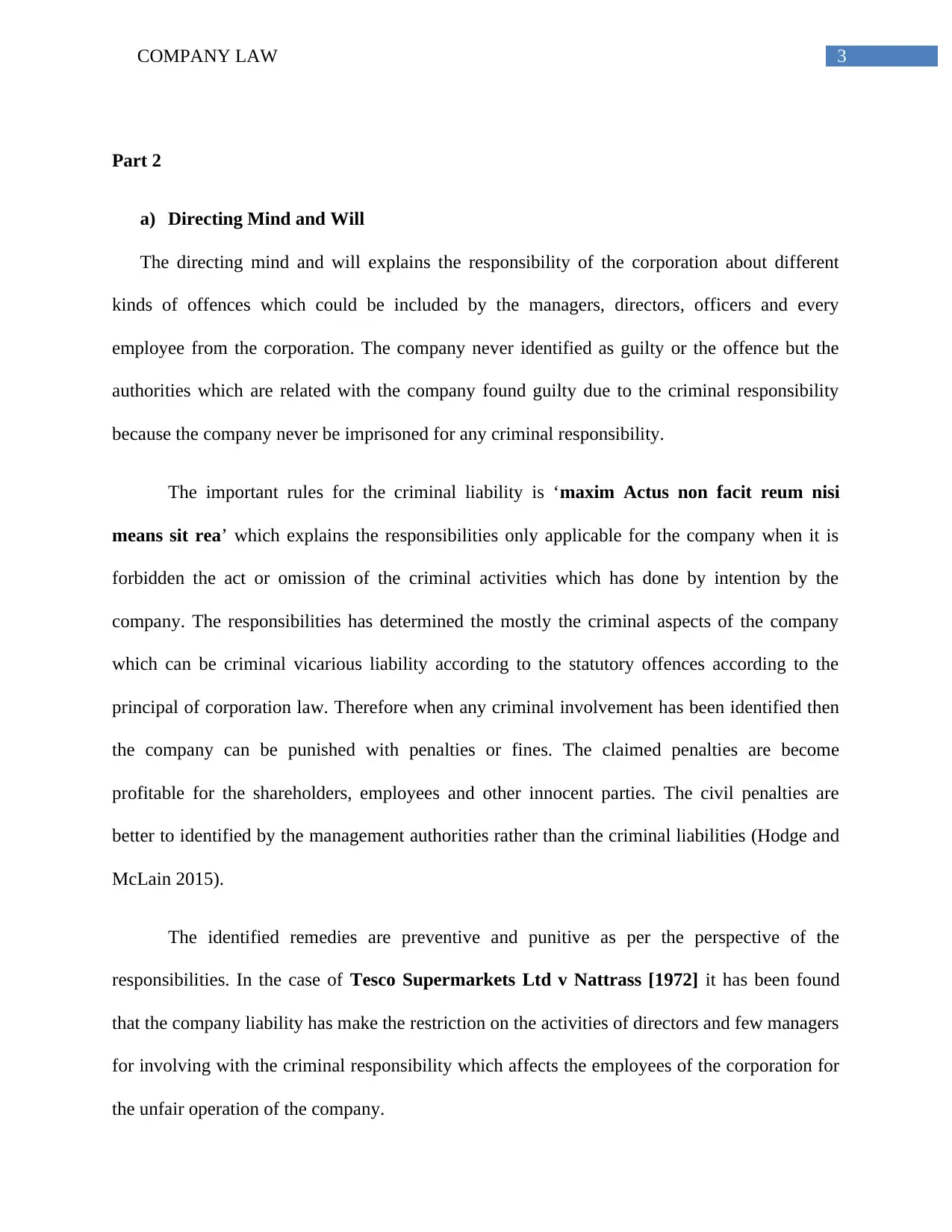
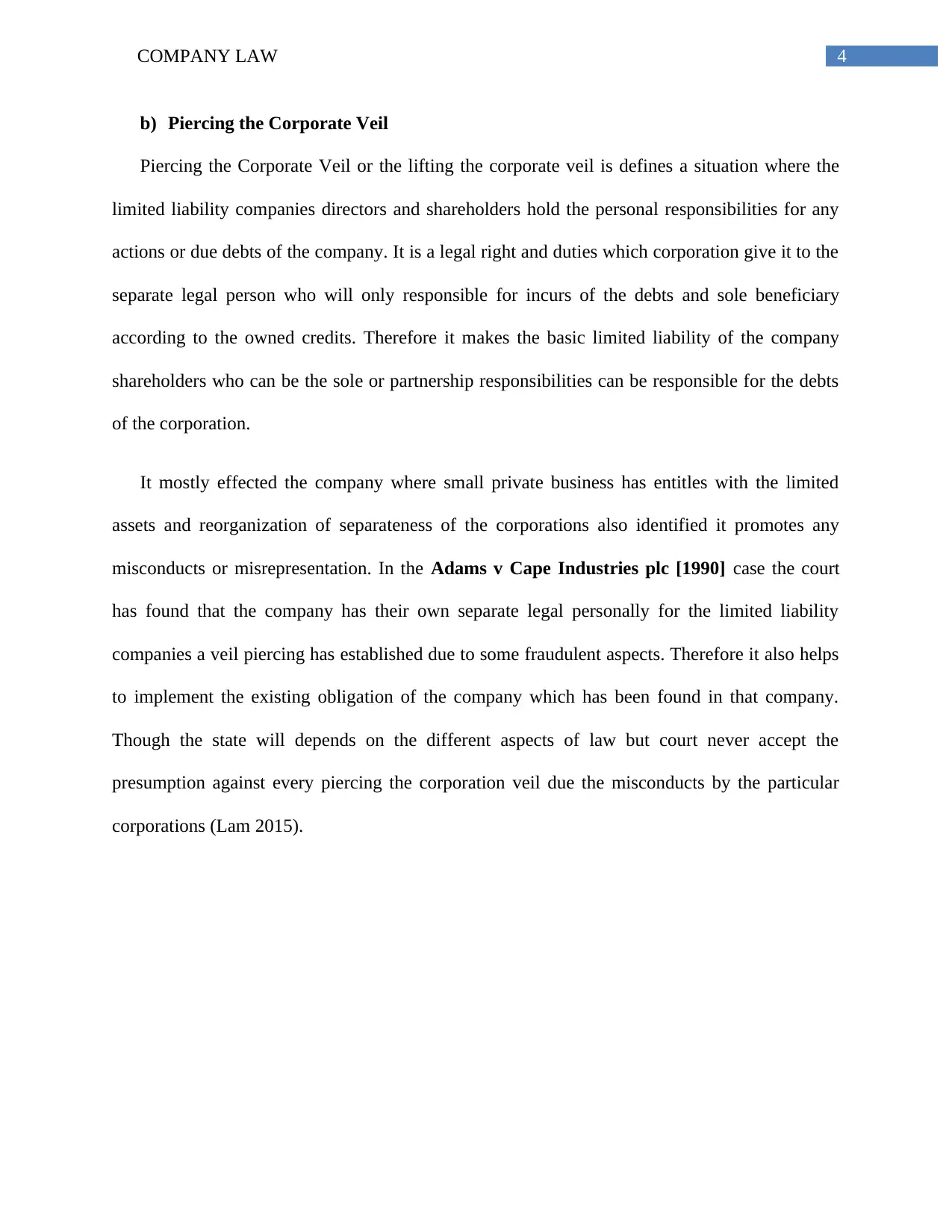
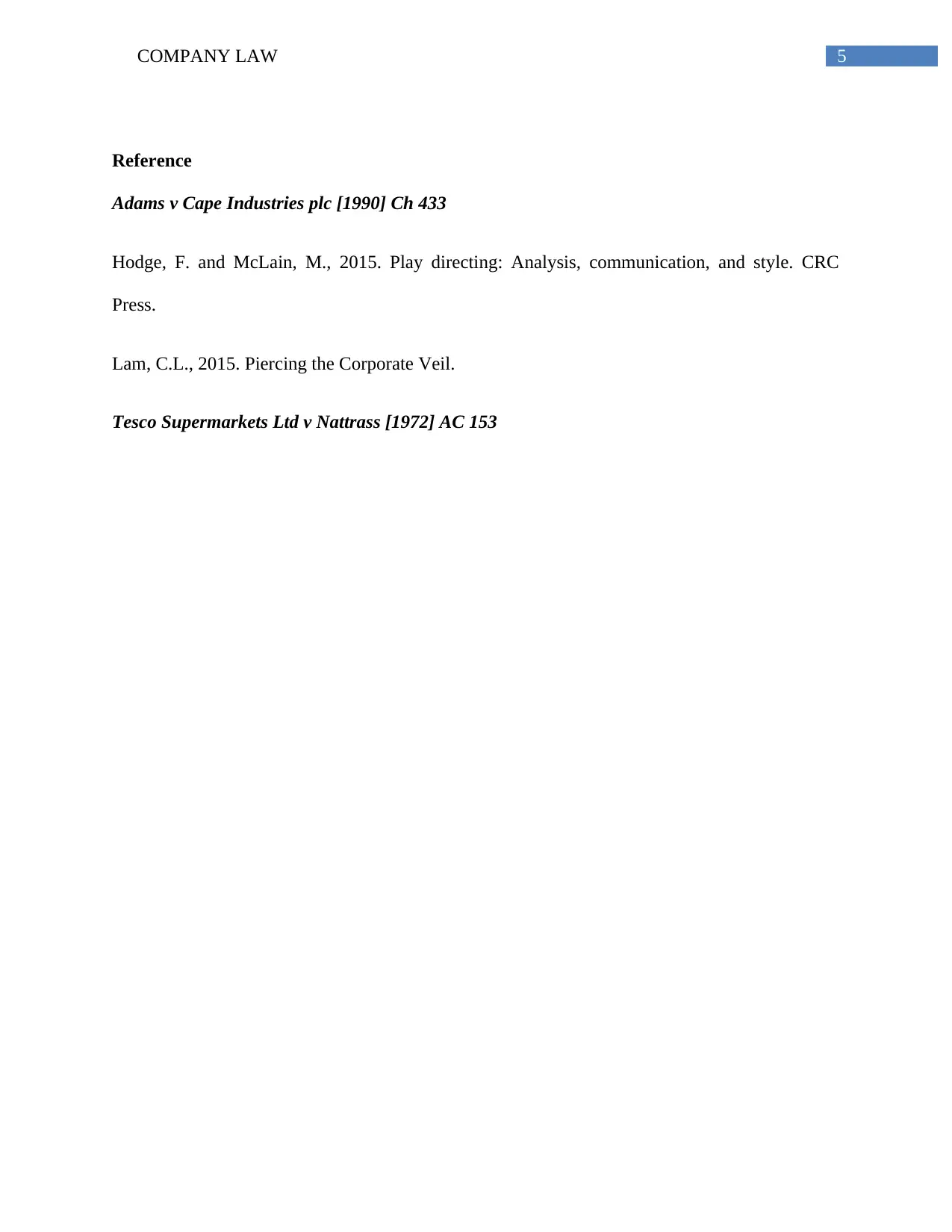






![[object Object]](/_next/static/media/star-bottom.7253800d.svg)